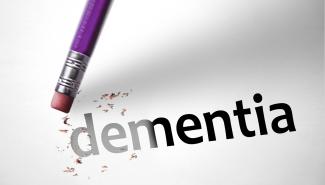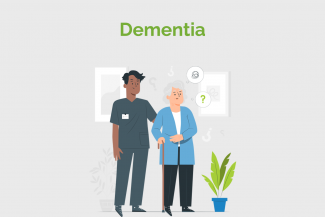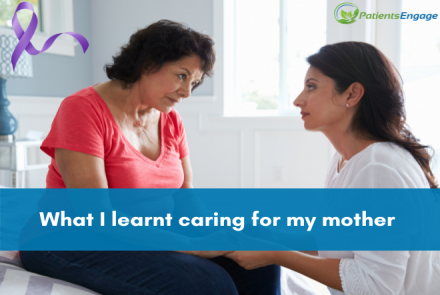
The most common symptoms of Dementia are:
• Memory loss, especially of more recent events
• Hallucinations and delusions
• Confusion
• Balance problems
• Loss of bladder or bowel control
• Sleep disturbances, including insomnia and acting out dreams — physically moving limbs, sleep talking, screaming, hitting or even getting up and engaging in daytime activities.
• Difficulty finding their way around, especially in new or unfamiliar surroundings
• Problems finding the correct words
• Poor concentration
• Problems learning new ideas or skills
• Psychological problems such as becoming irritable, saying or doing inappropriate things and becoming depressed or aggressive
• Severe mental and physical problems, including loss of speech, immobility, incontinence and frailty
• Difficulty planning, organising, or following instructions
• Laughing or crying inappropriately








